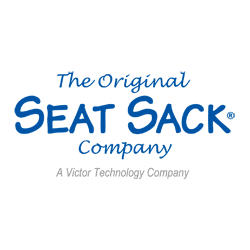By Denise Rice
It is no secret that the key to student success is like a puzzle. Many pieces must fit together for optimal success. Students must have a desire and drive to succeed. It’s helpful when parents walk alongside both the school and the student providing help and support as needed. And the school must do its part providing quality teaching, a supportive environment, and an integrated system of school support.
One of the keys to the puzzle is intentionally teaching study skills to students. In fact, it is one of the most important puzzle pieces if we want to create lifelong learners. Unfortunately, most teachers don’t realize all of the components of study skills. Fortunately, they are easy to learn and implement in any classroom.
The first step is to understand what the brain needs, and why this information assists study skills. I use the acronym PPLOWS to remember what it needs. The PPLOWS are as follows:
- Patterns are essential to helping the brain develop. Our brains create meaning from patterns we see or at least think we see. When we develop the same patterns and routines within our classrooms, and don’t deviate, our children learn better.
- Positive emotions are an obvious favorite of the brain. Teaching with enthusiasm, communicating with care, and having fun within the classroom creates happiness and then provides positive associations with learning.
- Light may not seem important, but it truly is. The main source of blue light is the sun, and our bodies are programmed to respond to that light. During the day, the blue light in sunlight boosts student attention, memory, energy levels, reaction times, and overall mood. As teachers, we must remind parents that in the evening exposure to blue light should be minimal. Blue light suppresses the release of melatonin in our brains, which leads to a lower quality of sleep, which interferes with learning.
- Organization is important because it helps with mental and physical happiness. Disorganization leads to lower grades, completing fewer assignments, frustration, and lower self-esteem. Although disorganized students are capable of experiencing many successes in school, there is the potential for their struggles to have a profound negative impact on their future.
- Water is such a simple thing, but yet it has a profound impact on the brain. When the brain is hydrated by water, it has electrical energy providing clarity for the sustained attention needed to perform during the school day. Providing your students with water at all times feeds the brain and provides a better learning experience for them.
- Stimulation is the final key for the brain. The brain loves kinesthetic movement, silly sayings, songs, and color. Anything unique perks its interest. Stimulation books working memory, and, of course, that helps all learning.
So, what are study skills and why teach them? The answer to both of these questions is easy. Study skills are skills used to acquire information, improve understanding, and improve performance. We teach them to level the playing field since everyone does not learn the same way, and because each child has his or her own strength. Study skills also help us teach children responsibility because they get the blame or the credit for the work they do.
The first step is teaching lifelong useful organizational skills. These are the things students need to be successful no matter their age. One of the keys to this is providing an assignment book that is developmentally appropriate for the child.
Assignment books that are colorful, have enough space to write the assignment, have clear dates, and a place to check off that an assignment is completed are extremely helpful to children. You need to remind them what to write in the book and help focus on the time frames for long term projects. It’s also important to sign books until you are confident that the child utilizes it without your help because this means they have learned how to prioritize tasks which is a lifelong skill.
The next step is to make sure that school supplies and work are in the right place. At an early age that may mean putting all scissors in one basket, crayons in another, glue in a third etc. Then everything they need is in one place. As they grow older, it means teaching children how to keep notes in the right folders and helping organize them over and over again till they get it.
Color is essential. I find that assigning a “color” to everything is helpful. I use a different color folder for each class and have the same color assigned to baskets for that class. The kids know exactly where to turn in work or find something for that class. When I give notes, important information that is on the test is written in one color, examples in a second, and extra information in a third. The students take their notes in those colors which helps when it comes to studying for a test.
As children grow older, taking notes is the next step. It is important to stress that everyone takes notes. While students will say, “I will remember this,” this won’t always be the case. Some teachers prefer certain methods over others; the method isn’t important. What is important is consistency in the class. The notes need to be kept in one spot, have the child’s name, date, and the topic at the top. And, while it is important to teach them how to take and keep notes, you must also teach children how to clean the “kitchen sink” meaning when to get rid of notes or papers.
Helping children organize and act on information they receive is a huge piece of the puzzle of learning. Children who are self-starters and can prioritize tasks will be successful in life. Those who can focus, stay on task, and shift and sustain attention are better prepared for the world. Study skills help our students do those things. This is why we intentionally teach them.
Denise Rice is a 35-year veteran middle school Language Arts teacher who has taught in various Lutheran schools in Florida and Missouri.
This article is courtesy of Good News Planners, which were designed to bridge faith life and school life, incorporating the good news of the Gospel of Christ into each student’s daily learning and supporting teachers with faith-centered content for class discussion.









